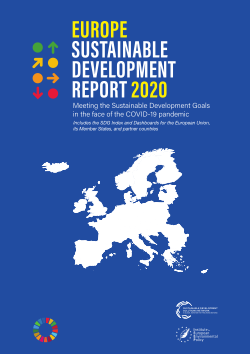 "In key policy areas, it is not enough to take additional steps; instead, a fundamental transformation must be initiated - the Federal Government recognises this with its dialogue version of the German Sustainability Strategy. The momentum for this transformation is now, and it needs tailwind from all ministries," explained Dr. Werner SchnappaufChairman of the German Council for Sustainable Development (RNE). "The version of the dialogue brings important innovations that will allow the policies of the coming years to be more closely aligned with the guiding principle of sustainability. The designation of transformation areas such as the energy and transport transition or the transition to a circular economy is an important step forward. At the same time, we believe that there is still room for improvement in some areas," said Schnappauf.
"In key policy areas, it is not enough to take additional steps; instead, a fundamental transformation must be initiated - the Federal Government recognises this with its dialogue version of the German Sustainability Strategy. The momentum for this transformation is now, and it needs tailwind from all ministries," explained Dr. Werner SchnappaufChairman of the German Council for Sustainable Development (RNE). "The version of the dialogue brings important innovations that will allow the policies of the coming years to be more closely aligned with the guiding principle of sustainability. The designation of transformation areas such as the energy and transport transition or the transition to a circular economy is an important step forward. At the same time, we believe that there is still room for improvement in some areas," said Schnappauf.
The Sustainability Council today publishes its Opinion on the further development of the German Sustainability Strategy and then presents it to Chancellor's Office Minister Prof. Dr. Helge Braun in a virtual exchange. The Council expressly welcomes the newly defined transformation areas, but these must be supplemented by concrete, interministerial strategies and roadmaps as well as ambitious and binding targets. Based on the transformation areas, the German government should develop a new set of key indicators for German sustainability policy and thus focus on the most important challenges of the future.
The Council's recommendations cover the following ten topics:
- Strengthen coherence
- Advancing sustainable finance
- Changing course for a sustainable economy in the sense of the SDGs
- Readjustment in the event of foreseeable missed targets
- We need a new narrative!
- Launching sustainability as a joint effort
- Prepare the report to the United Nations rapidly
- Emerging sustainably from the crisis
- Taking forward the European contribution
- For an ambitious German contribution to SDG implementation at international level
"Unfortunately, the international dimension falls short of the global challenges in the dialogue version and thus also of the Council's expectations," said Prof. Dr. Imme Scholz, Deputy Chair of the Council and Deputy Director of the German Development Institute (DIE). "The way we live and do business has a significant impact on others, especially on the countries of the Global South. That is why the SDGs must become the guiding principle in Germany's and the EU's multi- and bilateral relations as a whole. And for this to happen, the international dimension must also be adequately reflected in the Sustainable Development Goals and their indicators - in our statement, we make concrete suggestions for new goals and indicators," said Scholz. Many countries in the global South have been particularly hard hit by the economic and social consequences of the Corona pandemic, he said. "We must therefore support these countries in the upcoming transformation processes. Only together will we achieve the global climate and other sustainability goals," emphasized Imme Scholz.
In its statement, the Council also recommends publishing an abridged version of the new sustainability strategy in order to "introduce the topic into the discourse in the run-up to the Bundestag elections and the formation of a new government". To this end, renewed recommendations by the Council are also planned for the first half of 2021, which should place the guiding principle of sustainability more strongly than before at the centre of government action. In the Council's view, this also includes the inclusion of sustainability as a state objective in the Basic Law.
Source: PM of the Sustainability Council of the Federal Government dated 2.11.2020
Keywords: DE-News, Sustainable management, SDG 2030, Environmental policy



